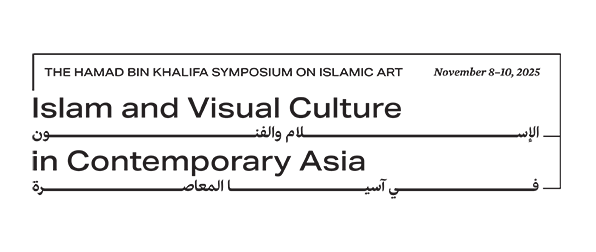Keynote Speaker: Monday, November 8
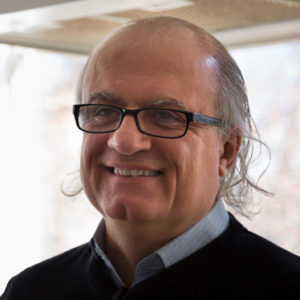
Nasser Rabbat is the Aga Khan Professor and Director of the Aga Khan Program for Islamic Architecture at MIT. His research interests include Islamic architecture, urban history, heritage studies, Arab history, contemporary Islamic art, and post-colonial criticism. He has published numerous articles and several books. His most recent books are ‘Imarat al-Mudun al-Mayyita (The Architecture of the Dead Cities) (2018), and an online book, The Destruction of Cultural Heritage: From Napoléon to ISIS, co-edited with Pamela Karimi (2016). His book on the 15th century Egyptian historian al-Maqrizi will come out in 2022. He is currently editing a book on the cultural history of Syria, and co-editing another on heritage conservation, destruction, and reconstruction.
He has previously published: al-Naqd Iltizaman (Criticism as Commitment), Mamluk History Through Architecture: Building, Culture, and Politics in Mamluk Egypt and Syria, Thaqafat al Bina’ wa Bina’ al-Thaqafa (The Culture of Building and Building Culture), and The Citadel of Cairo: A New Interpretation of Royal Mamluk Architecture. He edited The Courtyard House between Cultural Reference and Universal Relevance, co-edited Making Cairo Medieval, and co-authored Interpreting the Self: Autobiography in the Arabic Literary Tradition.
Prof. Rabbat worked as an architect in Los Angeles and Damascus and held several academic and research appointments in Cambridge MA, Princeton, Los Angeles, Cairo, Granada, Rome, Paris, Abu Dhabi, Doha, Munich, and Bonn. He regularly contributes to several Arabic newspapers, serves on the boards of various cultural and educational organizations, and consults with international design firms on projects in the Islamic World. In recent years, he began researching and publishing on immigration, refugees, heritage conservation, and destruction and reconstruction.
Tuesday, November 9

Rebecca Zorach teaches in the Department of Art History at Northwestern University, with affiliations in programs in American Studies and Environmental Policy and Culture. She writes on early modern European art, contemporary activist art, and art of the 1960s and 1970s. Particular interests include print media, feminist and queer theory, theory of representation, the Black Arts Movement, art and ecology, and the multiple intersections of art and politics. Her books include Blood, Milk, Ink, Gold: Abundance and Excess in the French Renaissance (Chicago, 2005), The Passionate Triangle (Chicago, 2011), and Art for People’s Sake: Artists and Community in Black Chicago 1965–1975 (Duke, 2019). She co-edited The Wall of Respect: Public Art and Black Liberation in 1960s Chicago (Northwestern, 2017) with Abdul Alkalimat and Romi Crawford and Ecologies, Agents, Terrains (Yale, 2018) with Christopher P. Heuer. She curated the exhibition The Time Is Now! Art Worlds of Chicago’s South Side, 1960–1980 at the Smart Museum (catalogue published 2018, co-edited with Marissa Baker). She is a board member of the South Side Community Art Center, where she chairs the Archives and Collections Committee, and South Side Projections. In 2021–22 she will be a Faculty Fellow at the Kaplan Institute for the Humanities at Northwestern, where will be working on two book projects, one entitled The Designs of Nature which deals with early modern European ideas about Nature as maker, in particular as a maker of images, art objects, and artifacts, and the other tentatively entitled Place Holding, in which she takes an experimental approach to writing about land, ecology, race and indigeneity, and art and its institutions in the United States.
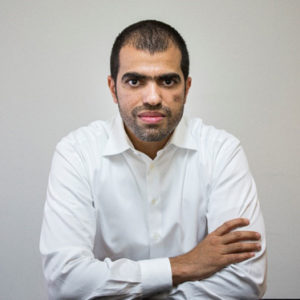
Farid Esmaeil is an architect, researcher, and entrepreneur; graduated from the American University of Sharjah with a degree in Architecture and founded the award-winning design firm, X Architects, in 2003. His design work addresses issues of contemporary society, urban identity, and architecture. Farid’s work has been widely recognized internationally through various awards, exhibitions, publications, and venues. He has lectured and addressed sustainable design and various other topics specific to the climate and environment at worldwide universities and institutions. In August 2019, Farid received the prestigious Aga Khan Award for Architecture for his design of the Wasit Wetland Centre.
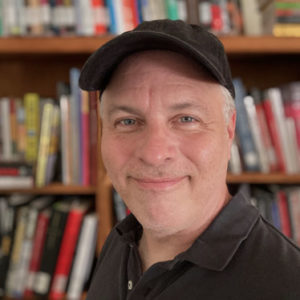
T.J. Demos is an award-winning writer on contemporary art, global politics, and ecology. He is Professor in the Department of the History of Art and Visual Culture, at University of California, Santa Cruz, and founding Director of its Center for Creative Ecologies. He researches the intersection of visual culture, radical politics, and political ecology—particularly where they oppose racial and colonial capitalism—and is the author of several books, including Beyond the World’s End: Arts of Living at the Crossing (Duke, 2020); Decolonizing Nature: Contemporary Art and Political Ecology (Sternberg, 2016); and Against the Anthropocene: Visual Culture and Environment Today, (Sternberg, 2017). He co-edited The Routledge Companion on Contemporary Art, Visual Culture, and Climate Change (2021), was a Getty Research Institute Fellow (Spring 2020), and directed the Mellon-funded Sawyer Seminar research project Beyond the End of the World (2019-21). Demos is also Chair and Chief Curator of the Climate Collective, providing public programming related to the 2021 Climate Emergency > Emergence program at the Museum of Art, Architecture and Technology (Maat) in Lisbon. He is presently working on a new book on radical futurisms.
Wednesday, November 10

D. Fairchild Ruggles holds the Debra Mitchell Endowed Chair in Landscape Architecture at the University of Illinois, Urbana-Champaign, with additional appointments as Professor in Art History, Architecture, Medieval Studies, Spanish & Portuguese Studies, and the Center for South Asian and Middle East Studies. She is the art and architecture field editor for the Encyclopedia of Islam and is the author of two award-winning books on Islamic landscape history: Islamic Gardens and Landscapes (2008; 2012 Japanese translation; 2017 Turkish translation) and Gardens, Landscape and Vision in the Palaces of Islamic Spain (2000), as well as numerous other authored, edited and co-edited volumes on Islamic art, cultural heritage, landscape history and theory, and the arts patronage of women in the Islamic world and South Asia. Her most recent book, Tree of Pearls (2020) looks at the architectural patronage of the Egyptian sultan-queen, Shajar al-Durr, and the development of public space in 13th-century Cairo.
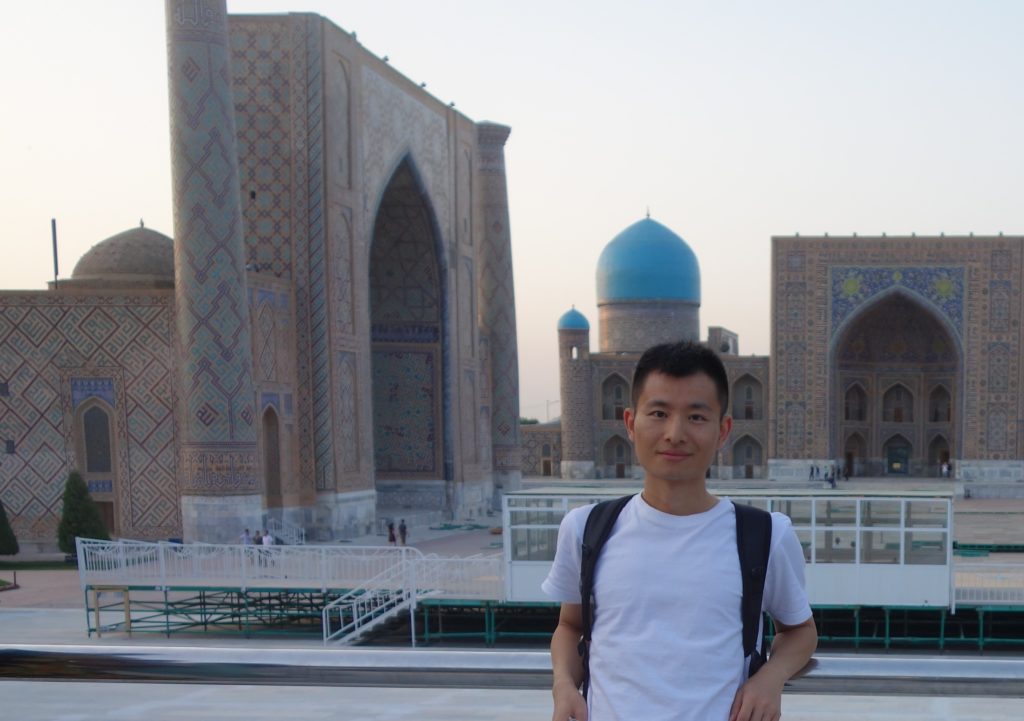
Yusen Yu is the Lecturer in Iranian Islamic Art History at the University of St Andrews. Prior to that, he was the Junior Research Fellow in Comparative Aesthetics and Art History at Corpus Christi College, Oxford. He received his PhD from Heidelberg University, Germany, in 2019. He specializes in Islamic art from a transregional perspective. His forthcoming book, Chinese Scrolls and the Persianate Audience in the Long Fifteenth Century, examines the ways in which the scrolls were viewed, understood, and used in Iran and Central Asia during the 1350s and 1550s. Continuing this line of inquiry, his current project explores the contemporaneous and later receptions of European prints, printed books, and printing technologies in the Islamic world. Other interests include medieval aesthetics, technology and craftsmanship, and the interrelationship between ecologies (animal, vegetable, and mineral) and aesthetic practices.

Stephane Pradines is an archaeologist and Professor of Islamic Art and Architecture at the Aga Khan University Institute for the Study of Muslim Civilisations (AKU-ISMC) in London. He was the Director of the excavations of the Fatimid and Ayyubid Walls of Cairo and many other excavations in the Indian Ocean (Maldives) and East Africa (Kenya, Tanzania, Comoros). He is a specialist of Islamic architecture in Egypt and Sub-Saharan Africa, medieval trade in the Indian Ocean and material culture of war in Muslim Africa (arms and military architecture). Dr. Pradines worked with different NGO on heritage and conservation of monuments and sites such as the Aga Khan Trust for Culture in Cairo, the UNESCO and the World Monument Fund in Kilwa, Kua and the Maldives. Stephane is the founding Editor of the Journal of Material Cultures in the Muslim World (MCMW), an academic journal in full open access published by Brill in partnership with The Aga Khan university and the Aga Khan Museum. His last book in press is entitled Historic mosques in Sub-Saharan Africa, from Timbuktu to Zanzibar.
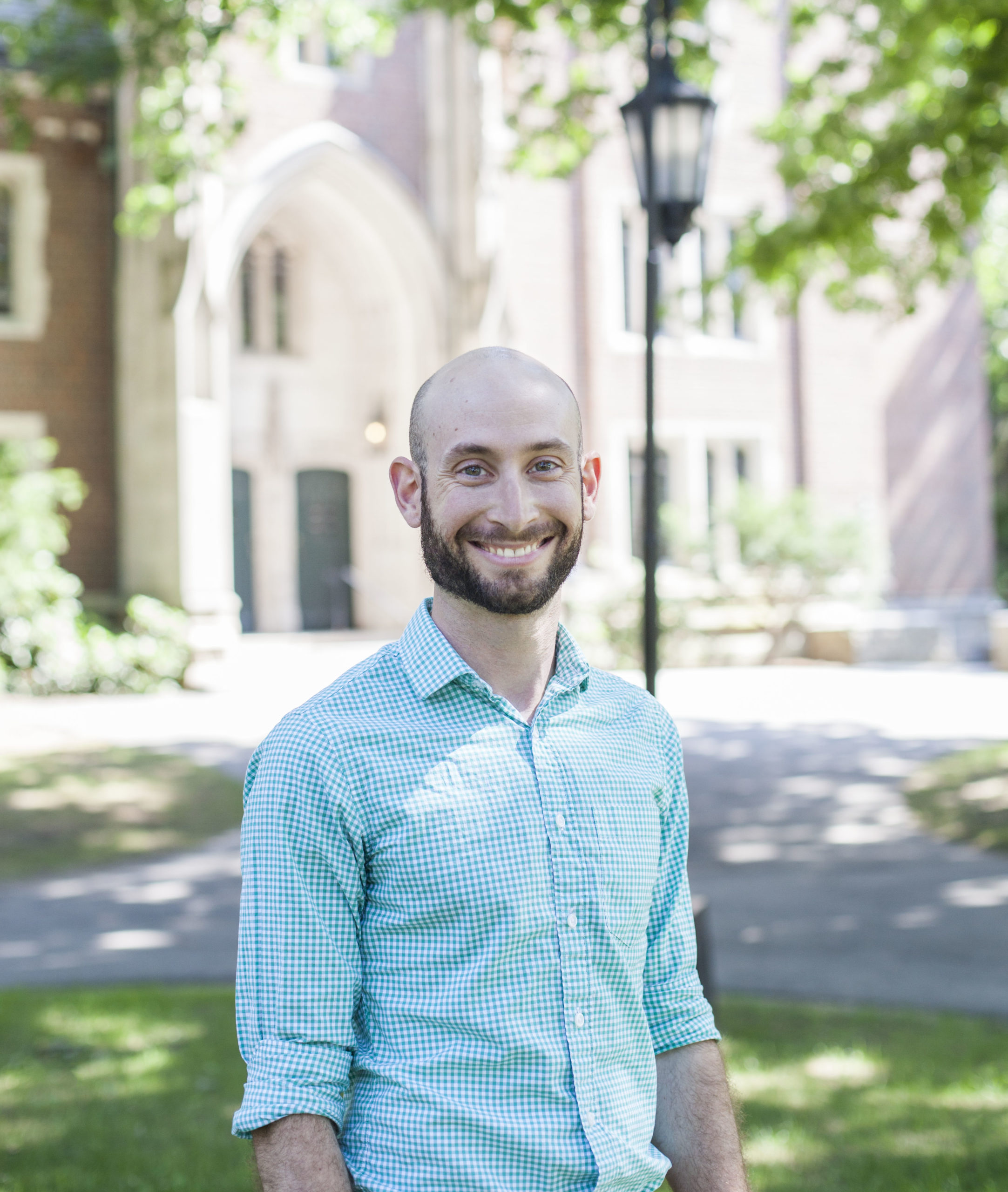
Alexander Brey (Ph.D., Bryn Mawr College 2018) is an assistant professor in the department of art at Wellesley College. His research focuses on the cross-cultural adaptation of images and ideas in early Islamic visual cultures, and digital methods for art history. Alexander has worked on archaeological excavations in Jordan and Israel, and received fellowships from the Dumbarton Oaks program in Garden and Landscape Studies, the American Center of Research in Amman, and the Albright Institute of Archaeological Research in Jerusalem. His current research project, tentatively titled The Caliph’s Prey: Hunting in the Visual Cultures of the Umayyad Empire (661-750 CE), analyzes depictions of hunting and constructed landscapes for hunting. Looking at monuments in the capitals, provinces, and frontiers of the Umayyad caliphate, it reconstructs the cultural and imperial associations of different types of hunting imagery, as well as the rhetorical frameworks that guided patrons and craftsmen in the reuse and adaption of hunting imagery for new political contexts.
Thursday, November 11

Anna M. Gade is Vilas Distinguished Achievement Professor and Associate Dean for Research and Education in the Nelson Institute for Environmental Studies, where she teaches courses in Islam and Environmental Humanities. She holds a Ph.D. from the University of Chicago in the History of Religions, specializing in Islam. She has previously held positions in Islamic Studies, Asian Studies and Religious Studies in the US and overseas (Aotearoa New Zealand). Her work has been grounded in ethnographic fieldwork in the region of Southeast Asia, especially Indonesia, for over 25 years, beginning with research on the aesthetics of sound and performance in Qur’an recitation (Perfection Makes Practice, 2004). Her areas of interest are theory and method in the academic study of religion and ethics in the environmental humanities. Her books include The Qur’an: An Introduction (Oneworld Publications 2010), and Muslim Environmentalisms: Religious and Social Foundations (Columbia University Press, 2019).

Nada Shabout is a Regent Professor of Art History and the Coordinator of the Contemporary Arab and Muslim Cultural Studies Initiative (CAMCSI) at the University of North Texas. She is the founding president of the Association for Modern and Contemporary Art from the Arab World, Iran and Turkey (AMCA). She is the author of Modern Arab Art: Formation of Arab Aesthetics, University of Florida Press, 2007; co-editor with S. Mikdadi, New Vision: Arab Art in the 21st Century, Thames & Hudson, 2009; and co-editor with S. Rogers and A. Lenssen, Modern Art in the Arab World: Primary Documents, Museum of Modern Art, New York, 2018. She is also founding director of Modern Art Iraq Archive. She has written extensively on Arab art historiography and Iraqi modern and contemporary art. Notable among exhibitions she has curated: Sajjil: A Century of Modern Art, 2010; traveling exhibition, Dafatir: Contemporary Iraqi Book Art, 2005-2009; and co-curator, Modernism and Iraq, 2009. Major awards of her research include: Getty Foundation 2019; Writers Grant, Andy Warhol Foundation 2018; The American Academic Research Institute in Iraq (TAARII) fellow 2006, 2007, Fulbright Senior Scholar Program, 2008. Shabout was the Project Advisor for the Saudi National Pavilion, Venice Biennale 2019. Shabout is on the Board of Directors, Visual Art Commission, Ministry of Culture, Saudi Arabia, the Board of The Academic Research Institute in Iraq (TARII), and the College Art Association (CAA) Board of Directors (2020-2024). Her current projects include, leading an AMCA team, as part of the Getty Foundation Connecting Art Histories initiative, in support of “Mapping Art Histories from the Arab World, Iran and Turkey,” coediting with Sarah Rogers and Suheyla Takesh, Modern Art in the Arabian Peninsula, and working on a new book project, Demarcating Modernism in Iraqi Art: The Dialectics of the Decorative, 1951-1979, both under contract with the American University in Cairo Press.

Huma Gupta is a Lecturer at the Aga Khan Program for Islamic Architecture at the MIT, where she is writing her book “The Architecture of Dispossession.” Gupta holds a PhD in History, Theory, and Criticism of Architecture from the Massachusetts Institute of Technology, where she was a fellow in the Aga Khan Program for Islamic Architecture. Her 2020 dissertation, “Migrant Sarifa Settlements and State-Building in Iraq,” historicizes the dialectical relationship between Baghdad’s reed-mat and mudbrick settlements populated by rural migrants and the development of state institutions in Iraq. Previously, Gupta was an International Dissertation Research Fellow at the Social Science Research Council, MIT Presidential Fellow, and a Humanities Research Fellow at New York University – Abu Dhabi. Her work has been published in the International Journal of Islamic Architecture, Thresholds, and Journal of Contemporary Iraq and the Arab World. Gupta is also an Environment Page editor at Jadaliyya.com and hosts the Environment in Context statushour.com podcast.

Rachel Winter is a Ph.D. candidate at the University of California, Santa Barbara researching contemporary artists from the Middle East. Her dissertation, “A Spectacle of Inclusion: The Rise of Contemporary Art from the Arab World, Iran, and Turkey in the United States and England, 1970-2020,” recovers the early history of museums in the US and UK collecting and curating contemporary Middle Eastern art beginning in the 1970s. Rachel’s research articulates the way competing modes of knowledge production across festivals, galleries, non-profit cultural centers, and museums acted as interlocutors for the growing interest in and subsequent proliferation of contemporary Middle Eastern art throughout American and British art institutions in a tumultuous sociopolitical moment shaped by cultural diplomacy, globalization, immigration, war, and diaspora. Artists featured include Madiha Omar, Ahmed Moustafa, Ali Omar Ermes, Osman Waqialla, and Dia al-Azzawi, as well as cultural institutions like the Iraqi Cultural Centre (London) and the Alif Gallery (Washington, D.C.). This project globalizes traditional histories of modern and contemporary art to decenter Western narratives, as well as contributes to the evolving field of contemporary Middle Eastern art history. Her research has received funding from the Center for Craft, as well as the Center for Middle East Studies and the History of Art & Architecture at the University of California, Santa Barbara. She recently presented her doctoral research at the Getty Graduate Symposium, the Middle East Studies Association, and the College Art Association. Rachel graduated with her M.A. from the University of Iowa in Interdisciplinary Studies: Islamic & Middle Eastern Studies in 2017 where she was named Outstanding Graduate Student in Islamic Studies, as well as her B.A. in art history with honors in 2015.
Friday, November 12
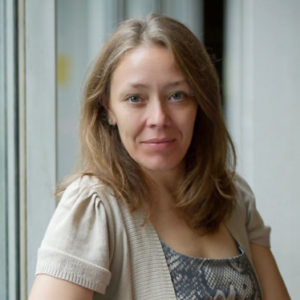
Amanda Boetzkes is Professor of Contemporary Art History and Theory at the University of Guelph. Her research focuses on the aesthetics and ethics of art as these intersect with climate change, global ecologies of waste, the visual imaginary of petrocultures and the concept of ecological perception. She is the author of Plastic Capitalism: Contemporary Art and the Drive to Waste (MIT Press, 2019), The Ethics of Earth Art (University of Minnesota Press, 2010), and co-editor of Heidegger and the Work of Art History (Ashgate, 2014). She has published in the journals South Atlantic Quarterly; Afterimage; Postmodern Culture; E-flux; The Large Glass, Art Journal; Art History; Polygraph; and Antennae: The Journal of Nature and Visual Culture among others. Recent book chapters appear in Nervous Systems: Art, Systems, and Politics Since the 1960s (Duke, 2021); Climate Realism (Routledge, 2020); Materialism and the Critique of Energy (MCM’, 2018); Fueling Culture: 101 Words for Energy and Environment (Fordham University Press, 2016); The Edinburgh Companion for Animal Studies (Edinburgh University Press, 2017); and Art in the Anthropocene: Encounters Among Politics, Aesthetics, Environments and Epistemologies (Open Humanities Press, 2015). Her current research considers modes of visualizing environments with a special focus on contemporary Inuit art and the environments of the circumpolar North. This research theorizes the interplay between artistic propositions for inhabiting the planet and the readjusted parameters of perception demanded by climate change.
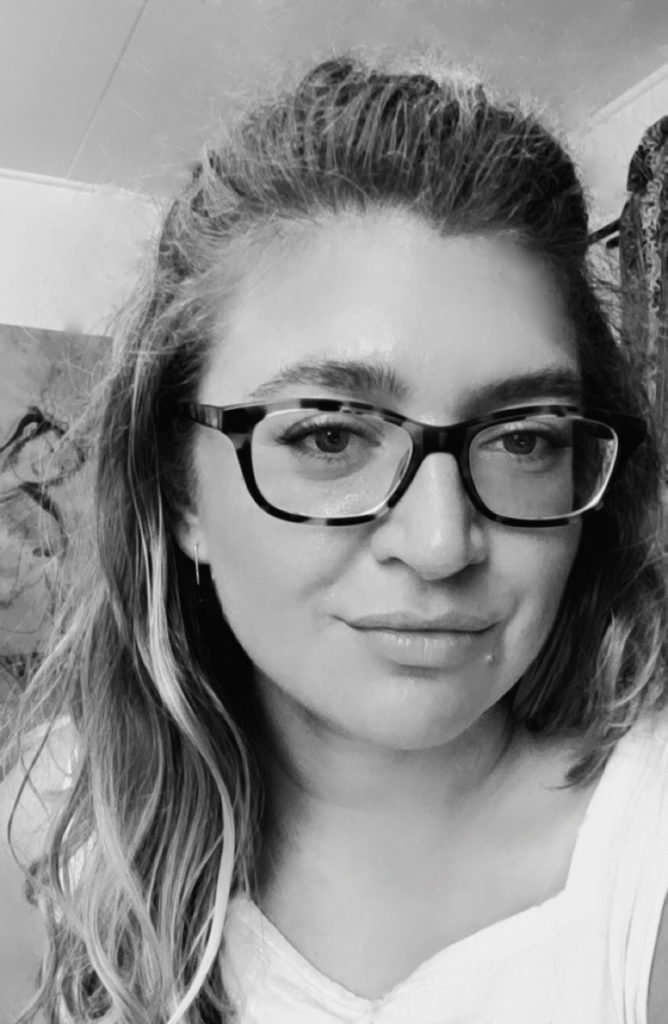
Elizabeth Rauh (University of Michigan, 2020) is Assistant Professor of Modern Art and Visual Cultures at the American University in Cairo. Specializing in modern art history of Iran, Iraq, and Western Asia, her work examines artist engagements with Islamic heritage, popular image practices and technologies in Shi`i Islam, and arts of the 20th-century “Shi`i Left.” She also pursues research in ecological art practices in the history of the Persian Gulf, such as in her forthcoming study: “Experiments in Eden: Midcentury Artist Voyages into the Mesopotamian Marshlands” (Journal of Contemporary Iraq & the Arab World), short video lecture “A Hot Wind Blows: Ecocritical Art in the Middle East” for Khamseen Islamic Art History Online, and upcoming exhibition project “Iraq En Route: A Photographic Journey, 1952-1953” with the Cranbrook Institute’s Center for Collections and Research (Detroit, Summer 2021). Her research has been funded by The Academic Research Institute in Iraq, the Darat al Funun Center for Modern and Contemporary Arab Art, the Max Weber Foundation, and the Andrew W. Mellon Foundation. She is the Social Media Coordinator for the Association for Modern and Contemporary Art of the Arab World, Iran, and Turkey (AMCA), and co-founder and co-organizer with Dr. Pamela Karimi of Noqtah: Art Points Conversation Series on Modern and Contemporary Arts of the Middle East (AMCA, 2020-).
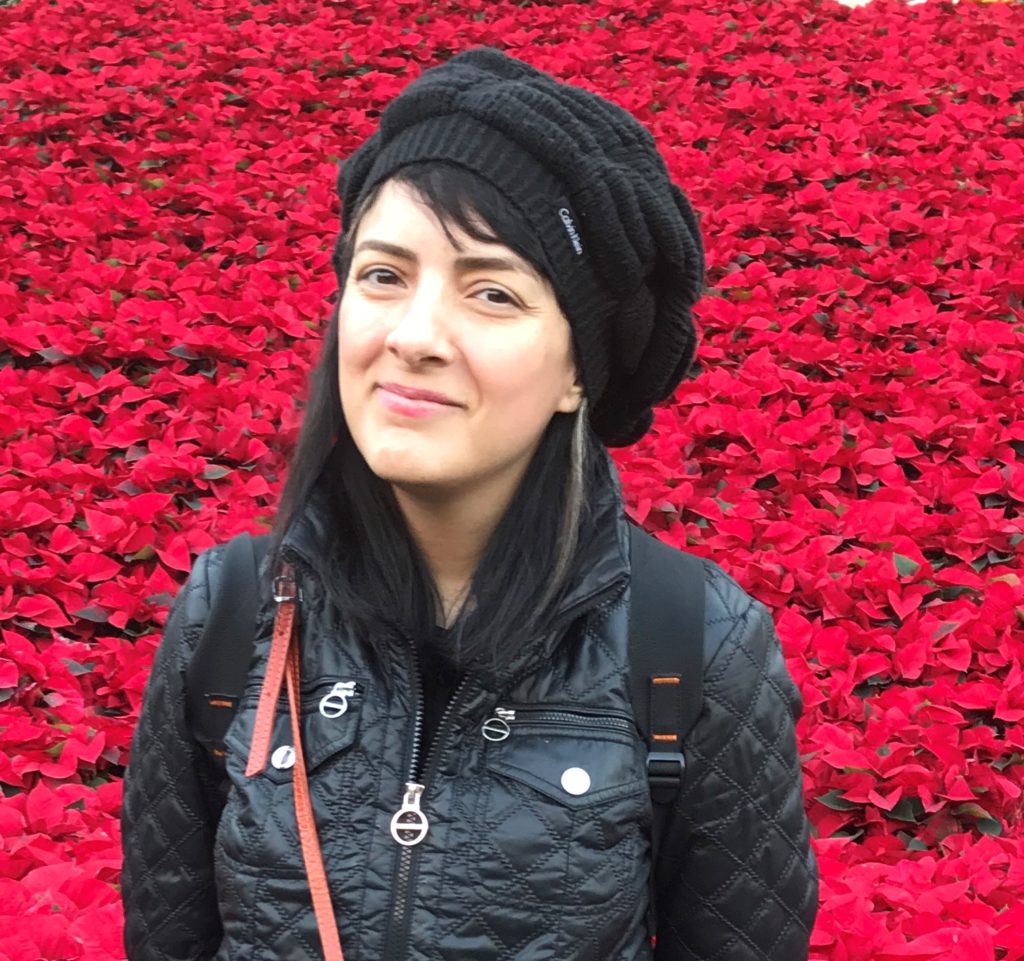
Pamela Karimi is an architect and an architectural historian. She holds a PhD from the Aga Khan Program at MIT. Her primary field of specialization is art, architecture, and visual culture of the modern Middle East. Her second area of research is design and sustainability in North America. She is the author of Domesticity and Consumer Culture in Iran (2013) and co-editor of Images of the Child and Childhood in Modern Muslim Contexts (2012), Reinventing the American Post-Industrial City (2015) and The Destruction of Cultural Heritage in the Middle East: From Napoleon to ISIS (2016). Karimi’s forthcoming book, Alternative Iran: Contemporary Art & Critical Spatial Practice will be published by Stanford University Press in 2022. Her major curatorial projects include Urban Renewal and Creative Economy in Massachusetts Gateway Cities, Stateless: Artists Respond to the Refugee Crisis, Black Spaces Matter: Exploring the Aesthetics and Architectonics of an Abolitionist Neighborhood, and Contemporary Iranian Art & the Historical Imagination. Karimi has held fellowships from the Iran Heritage Foundation at SOAS, American Council of Learned Societies, the Social Science Research Council, and the American Association of University Women. In 2018 Karimi received the Manning Prize for Excellence in Teaching. More recently Karimi was the co-recipient of a major grant from the Connecting Art Histories Initiative at the Getty Foundation, which will undertake extensive research on courses, programs, and alternative educational platforms in the fields of art history and architectural studies throughout the Middle East and North Africa. Co-founder of Aggregate Architectural History Collaborative and a former member of the editorial team of the International Journal of Islamic Architecture, Karimi currently serves on the editorial and scholarly boards of Thresholds Journal (MIT Press) and the Association of Modern and Contemporary Art of the Arab World, Iran, and Turkey, respectively.
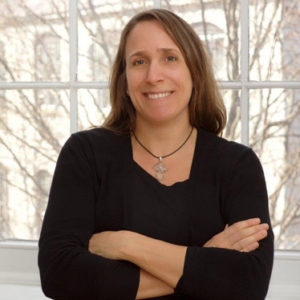
Michelle Moore Apotsos is an Associate Professor of Art at Williams College. She received her M.A. from Tufts University and her Ph.D. from Stanford University where she specialized in the arts and visual cultures of Africa with a focus on the Islamic built environment. She is also a former Research Associate at the National Museum of African Art, Smithsonian Institution (Washington, D.C.) and is an active contributor to various academic publications including the Journal of Architectural Education, African Arts, International Journal and Islamic Architecture, and Material Culture Review. Her two volumes – Architecture, Islam, and Identity in West Africa: Lessons from Larabanga (Routledge, 2016) and The Masjid in Contemporary Islamic Africa (Cambridge University Press, 2021) – each respectively address how the built environment functions as a mode of crafting Muslim identity through spatial practice. These interests also inform recent / forthcoming works on the intersection of architecture, race, and Islam during the Malian Empire (The Routledge Handbook of Islam and Race, ed. Zain Abdullah. New York: Routledge, forthcoming), the resilience of colonial imaginaries in the context of contemporary East African Islamic heritage sites (Decolonizing Islamic Art in Africa. Ed. Ashley Miller. Chicago: Intellect and the University of Chicago Press, forthcoming), and the advent of eco-vernacular architecture and post-natural building in South Africa (with Anita Venter, The Sustainability Handbook – Vol. 13 South Africa, ed. Llewelyn van Wyk, Johannesburg: Alive2Green, 2020). Her interests in these topics have been supported by grants from the American Association of University Women (AAUW), the Graham Foundation, and the Global Architectural History Teaching Collaborative (GAHTC) at MIT.

Nisa Ari is the 2021-23 Beinecke Postdoctoral Fellow at the Center for Advanced Study in the Visual Arts, National Gallery of Art in Washington, D.C. She studies late-19th and 20th century visual practices, with a focus on the artwork and cultural politics of Palestine. Her current book project, Cultural Mandates, Artistic Missions, and “The Welfare of Palestine,” 1876–1948, explores how radical political transformations from the last decades of Ottoman rule until the establishment of the State of Israel changed the nature of artistic production in Palestine. Her research has been published in Third Text, Arab Studies Journal, and Thresholds, and has been supported by numerous fellowships, including the Mellon Foundation/American Council for Learned Societies, the Terra Foundation for American Art, the Palestinian American Research Center, and the Darat al Funun center for Arab art in Amman. She is a Junior Fellow of the Mellon-Rare Book School Society of Fellows in Critical Bibliography and is the recipient of the 2017 Rhonda A. Saad Prize for Best Paper in Modern and Contemporary Arab Art from the Association for Modern and Contemporary Art of the Arab World, Iran and Turkey (AMCA). She has also served as a book reviews editor for AMCA since 2018. Ari previously held positions as a Lecturer in Art History and faculty affiliate with the Center for Arab Studies at the University of Houston, as well as Associate Director of the Studio Program at the Elizabeth Foundation for the Arts in New York City. She received her Ph.D. in the History, Theory, and Criticism of Art and Architecture program at MIT.
